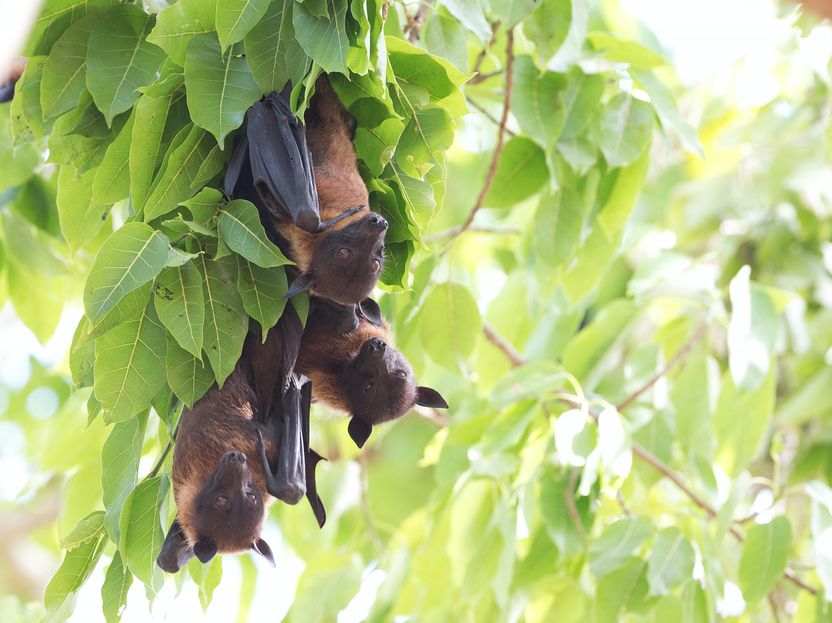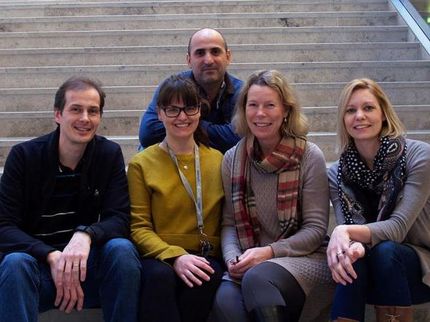ARTES Biotechnology, instrAction and Q-Biologicals Join Forces for Veterinary Vaccine Development
ARTES Biotechnology, InstrAction and Q-Biologicals establish a three-party consortium for vaccine developments for veterinary applications.
Under the title:” development of a virus-like-particle (VLP) based vaccine platform and stable formulation especially suited for the veterinary applications”, in short “Plurivax”, the EU cooperation is part of the recent 8th EuroTransBio call and will be funded for a three year period supported by the German Federal Ministry of Education and Research (BMBF) and the Flanders (Belgium) agency for Innovation by Science and Technology (IWT)
Nowadays virus-like particles (VLPs) have become a widely used vehicle for the development of vaccines used in humans. Without being infectious, the particles are used to transport foreign antigens in an ideal way to the immune system. For veterinary applications, the applied VLP production process needs to be simplified and optimized. The platform technology and the common production process requires adaption in reference to cost-effectiveness and promptness. Especially the factor “manufacturing cost” is the major driver for a successful market introduction and will influence the acceptance for later necessary mass vaccinations in the veterinary field.
The intent of “Plurivax” is to develop a stable production platform and an adapted high-quality process to have an effective and usable integrated best practice suitable for several veterinary vaccines.
The platform resulting from this project will be the first of its kind in veterinary application and thus opens access to a huge market. A robust, inexpensive vaccine will reduce the need for antibiotic treatment of food animals, thereby directly reducing production costs and improving quality of life for the food animal itself and for the consumer.
“ARTES VLP platform METAVAX® has already been applied to the development of adjuvant-free vaccines against different diseases like avian and swine flu, malaria and HIV. Our yeast expression host Hansenula is the preferred technology for affordable mass vaccination and is recommended by the WHO for mass vaccinations. Together, our platforms build an excellent approach to low-cost mass production of safe and effective vaccines”, Michael Piontek, Managing Director of ARTES.
Annie Van Broekhoven, CEO Q-Biologicals comments: “We will employ our know-how and expertise in the field of bioprocess development, manufacturing and formulation of recombinant antigens to develop a robust production process for VLP based vaccines. Our aim is to generate a generic, low-cost manufacturing process which will result in a high yield of a stable vaccine. Levering our expertise in production of recombinant antigens, we are confident that we will succeed in shortening the process development times considerably, and in doing so drive down development costs and support rapid market introduction.”
“We at instrAction will contribute our tailor made but competitively priced platform purification process to this cost sensitive production processes. Our proprietary chromatography phase technology, already being used for purification of commercial biopharmaceuticals and small molecule APIs, allows specific binding of target molecules whether impurity or API, and can be transferred to almost every chromatographic carrier substrate to enable optimum separation and process robustness.”, Peter Kallien, CFO of instrAction, pointed out.
Most read news
Organizations
Other news from the department business & finance

Get the life science industry in your inbox
By submitting this form you agree that LUMITOS AG will send you the newsletter(s) selected above by email. Your data will not be passed on to third parties. Your data will be stored and processed in accordance with our data protection regulations. LUMITOS may contact you by email for the purpose of advertising or market and opinion surveys. You can revoke your consent at any time without giving reasons to LUMITOS AG, Ernst-Augustin-Str. 2, 12489 Berlin, Germany or by e-mail at revoke@lumitos.com with effect for the future. In addition, each email contains a link to unsubscribe from the corresponding newsletter.
Most read news
More news from our other portals
Last viewed contents
ThromboGenics and BioInvent Announce Positive Topline Results from Phase II VTE Prophylaxis Study with Anti-Factor VIII (TB-402)
Study shows that mutations in 1 gene cause many cancers
Chondromalacia_patellae

Nanostructures with living cells
Category:English_marine_biologists





















































